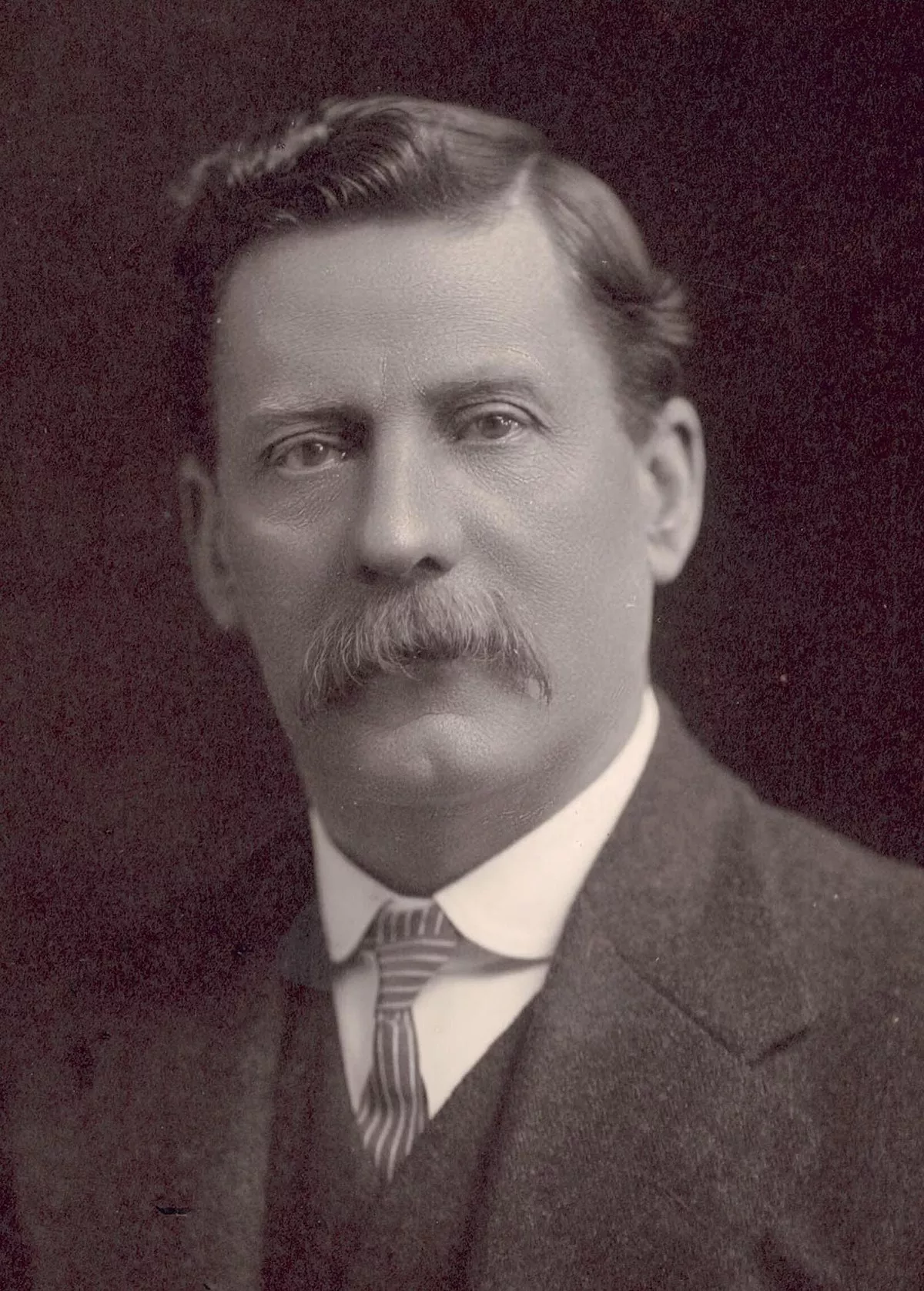 1.
1. Edward Davis Millen was an Australian journalist and politician who served as the first Minister for Repatriation.

 1.
1. Edward Davis Millen was an Australian journalist and politician who served as the first Minister for Repatriation.
Edward Millen was a member of the New South Wales Legislative Council from 1899 until his election to the Australian Senate as a Free Trader from New South Wales at the first federal election in 1901.
Edward Millen led the conservative parties in the Senate from 1907 until shortly before his death in 1923.
Edward Millen served as Vice-President of the Executive Council and Minister for Defence in two short-lived Liberal governments before his appointment as the first Minister for Repatriation in 1917.
Edward Millen organised the new department and co-ordinated Australia's repatriation effort, and was briefly acting Prime Minister in 1919, when he settled a seamen's strike.
Edward Millen resigned from the ministry in February 1923 and died later that year, his illness attributed to his heavy workload in the post-war years.
Edward Millen was born in Deal, Kent in 1860 to John Bullock Edward Millen, who was a pilot of the Cinque Ports, and Charlotte.
Edward Millen migrated to New South Wales in 1880, having been educated in England and employed in the marine insurance business.
Edward Millen, who had worked as a journalist in Bourke and Walgett and wrote for the Central Australian and Bourke Telegraph, became editor of the Western Herald and Darling River Advocate around 1889, part-owning the business together with Philip Chapman until 1901.
Edward Millen stood for the New South Wales Legislative Assembly as the Free Trade candidate for Bourke in 1891, but was defeated; he contested the seat again in 1894 and won.
Edward Millen became known as a strong advocate for land reform, urging changed pastoral conditions and suggesting additional government assistance to deal with Australia's dry climate, particularly during the 1890s drought.
Edward Millen was a foundation member of the New South Wales Australasian Federation League in 1893, formed to campaign for the unification of the six Australian colonies into a single Commonwealth, and in 1896 was active at the Bathurst People's Federation Council.
At the 1898 election, Edward Millen was defeated by nine votes by a National Federal candidate.
At the first federal election in March 1901, Edward Millen stood for the Senate as a Free Trade candidate and was elected as the second of six senators for New South Wales.
Edward Millen was an early leader in the Senate, serving as deputy to Josiah Symon's unofficial leadership of the Free Trade Senators in 1901.
Edward Millen advocated against high tariffs and bounties, claiming that industries that could not withstand free trade were "not entitled to much consideration at [the Senate's] hands".
Edward Millen succeeded Symon as leader of the Free Traders in the Senate in 1907, and following the Fusion with the Protectionists in 1909 became Leader of the Government in the Senate and Vice-President of the Executive Council under Prime Minister Alfred Deakin; he would lead the various conservative parties in the Senate continuously until his death.
In 1913, following Joseph Cook's one-seat victory in the election, Millen became Minister for Defence, a position he held at the outbreak of World War I In April 1914 he refused Winston Churchill's suggestion that Australia need not maintain a fleet in its own territorial waters, and expressed "the sharpest criticism of the British" in a memorandum tabled in the Senate.
Edward Millen continued to privately criticise Britain's management of the war, but the Cook government ultimately placed the navy under the control of the British Admiralty in August 1914.
Edward Millen oversaw the initial recruitment of 20,000 men for the Australian Imperial Force and initialised the defence proposals for the war, but following the Labor Party's victory at the 1914 election he returned to leading the Opposition in the Senate, although he did become a member of the parliamentary war committee.
Together with Major Nicholas Lockyer, the controller of repatriation, Edward Millen had responsibility for the creation of a new governmental department.
Edward Millen introduced the Australian Soldiers Repatriation Bill, which provided for a paid repatriation commission and higher pensions for servicemen, into the Senate in March 1920.
Edward Millen returned to Australia in 1921, having arranged for the funding of Australia's debts and reorganised Australia House.
Edward Millen retired from the ministry in February 1923, and in March was granted leave of absence because of his deteriorating health.
Edward Millen died aged 63 from chronic nephritis on 14 September 1923 at Caulfield in Melbourne, survived by his wife and two daughters.
Presbyterian services were held at Parliament House in Melbourne and St Stephen's Church in Sydney, and Edward Millen was given a state funeral.
Edward Millen experienced fierce criticism from both the press and parliament during his time as Minister for Repatriation, but he is remembered as an important figure in Australia's war effort and subsequent recovery.
Edward Millen has been described as the "most significant" contributor to the development of repatriation in Australia, which he as inaugural minister largely defined.